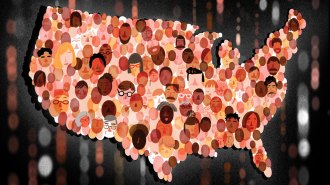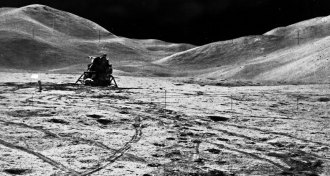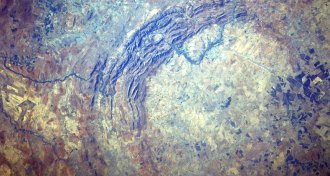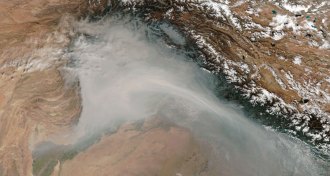Chart
Sign up for our newsletter
We summarize the week's scientific breakthroughs every Thursday.
-
 Animals
AnimalsCheap, innovative venom treatments could save tens of thousands of snakebite victims
Momentum is building to finally tackle a neglected health problem that strikes poor, rural communities.
-
 Health & Medicine
Health & MedicineFive big questions about when and how to open schools amid COVID-19
Researchers weigh in on how to get children back into classrooms in a low-risk way.
-
 Health & Medicine
Health & MedicineCOVID-19 case clusters offer lessons and warnings for reopening
As restaurants, offices and other businesses open, trends in where and how COVID-19 transmission is happening could help guide re-entry strategies.
-
 Health & Medicine
Health & MedicineFlorence Nightingale understood the power of visualizing science
Florence Nightingale showed simple sanitation measures could stop infectious diseases’ spread, a timely message given the ongoing coronavirus pandemic.
By Sujata Gupta -
 Science & Society
Science & SocietyHow the U.S. census has measured race over 230 years
As the U.S. census gets under way, a review of historical data shows the difficulties in measuring race
-
 Science & Society
Science & SocietyTo fight discrimination, the U.S. census needs a different race question
Asking about race on the U.S. census can help identify discrimination against minority groups. But sociologists say the question needs a makeover.
By Sujata Gupta -
 Planetary Science
Planetary ScienceApollo astronauts left trash, mementos and experiments on the moon
Here’s what planetary scientists are learning from the remains of Apollo outposts, and how archeologists hope to preserve it.
-
 Planetary Science
Planetary ScienceAfter 15 years on Mars, it’s the end of the road for Opportunity
After 15 years of exploring Mars, a dust storm led to the demise of NASA’s longest-lived rover.
-
 Science & Society
Science & SocietyThe #MeToo movement shook up workplace policies in science
In the #MeToo era, the scientific community is confronting its own sexual harassment problems and looking to research for solutions.
By Kyle Plantz -
 Earth
EarthErosion has erased most of Earth’s impact craters. Here are the survivors
Earth’s largest known impact crater measures 160 kilometers in diameter. The newest, yet to be confirmed, stretches a still-whopping 31 kilometers.
-
 Health & Medicine
Health & MedicineAir pollution is shaving a year off our average life expectancy
The first country-by-country look at how dirty air affects when we die shows it can have more impact on mortality than breast or lung cancer.
By Katy Daigle -
 Science & Society
Science & SocietyClosing the gender gap in some science fields may take over 100 years
In some STEM fields, the gender gap won’t disappear for decades or even centuries, a new study suggests.
By Kyle Plantz